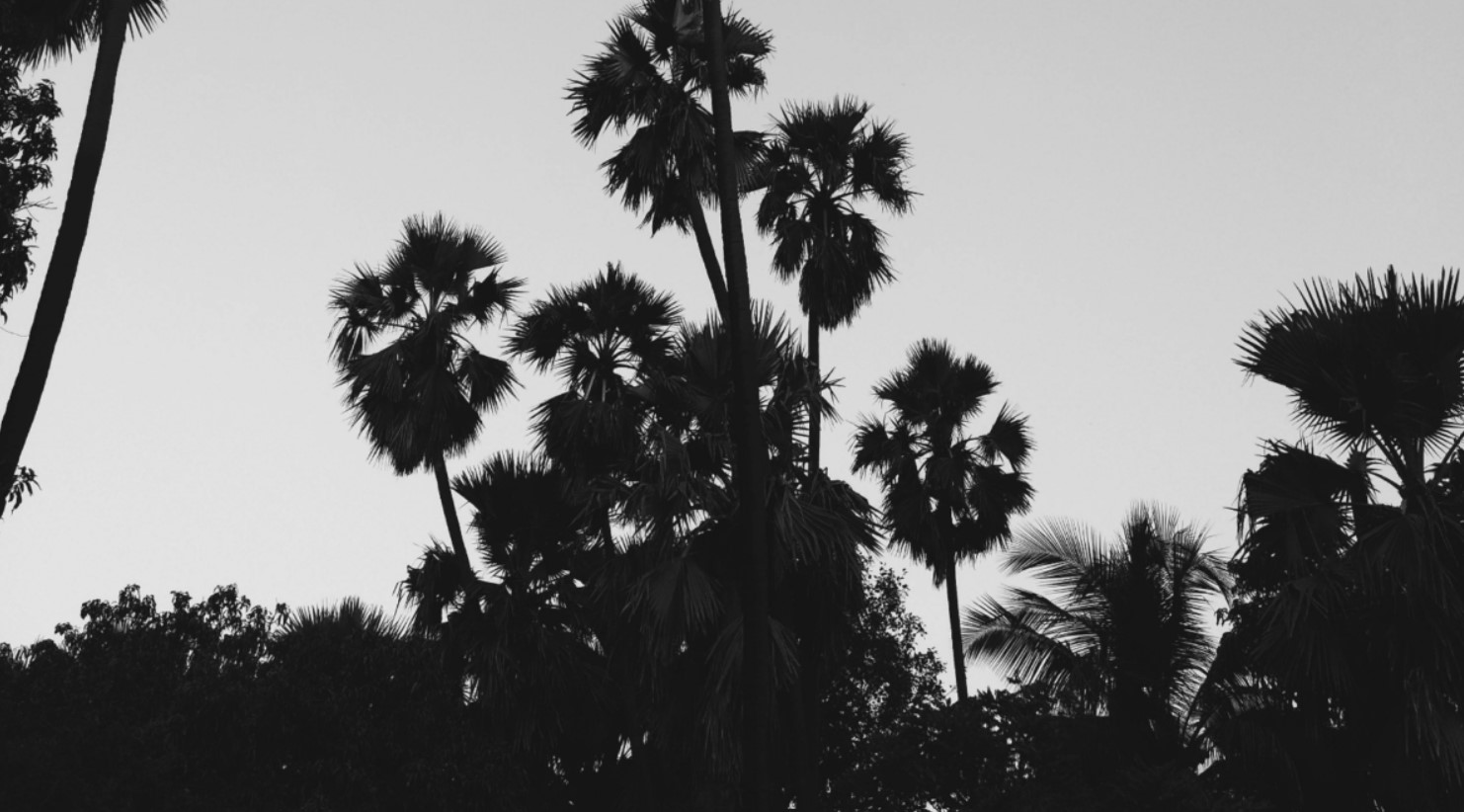1.
I am on a train going to Hampstead for my mother’s surprise professorship dinner party, organised by her boyfriend. I yawn and stretch my legs, fatigue seeping through my body. I had just finished a 12-hour shift, the last few hours spent performing a craniotomy on a 12-year-old girl, an aspiring ballerina, who had been hit by a drunk driver. I try to push away the bloody image of the surgery and keep my emotions at bay. What goes on in the hospital stays in the hospital- a rule I’ve embedded in myself since I started my residency.
“Have it”, my train neighbor says, handing me a handkerchief. She smiles and stretches her hand further toward me. I feel the coldness of tears on my face; I had been crying without realising it. I nod, take the handkerchief, and she goes back to affectionately patting a child strapped to her. Henna swirls up her arms like the tail of a dragon. Her head is wrapped in a brown silk scarf and it frames her face. Her lips are deep red and plum. She is gorgeous.
I remove my earpiece and pause Linda Ronstadt’s Across The Border.
“Where are you from?” I ask, smiling.
“Everyone’s from someplace, right? Everyone’s root is in some place that’s not London. London is like the home of sojourners”, she says chuckling.
“Now that you say it like that, it sort of makes sense”, I say.
“I am from Somalia. Where are you from?” she asks.
“Nigeria”
Her eyes light up. “My mother is Nigerian. She makes beautiful textiles”, she says, digging into her big leather bag and fetching two business cards.
“This one, the green one, is for me. I do hair, beautiful weaves. I can make an Afro just like the one you have now. I also have great natural hair products. Besides that, I clean homes. Just give me a call if you ever need me”, she says, handing me the cards. I take the cards and put them in my coat’s breast pocket.
The train stops, and she gets up, arranging the child on her back. I help her, and she gives me a tight hug, whispering, “Be happy”, before stepping off the train.
I plug in my earpiece and sink further into my seat. I close my eyes and nod off to Linda’s voice
For me, you’ll build a house
High up on the grassy hill
Somewhere across the border
Where pain and memory
Pain and memory have been stilled
2.
I was seven when my mother ended her marriage to my father, an abusive, broken man whose rage came in waves. Sometimes quiet and brewing, other times violent and murderous. After ten years of enduring his tyrannical reign, he finally crossed the line, tearing the veil of endurance that kept my mother bound.
He sold our house.
He beat my mother into a coma when she confronted him about it.
He brought in a second wife and pulled my siblings and me from school.
My mother packed us in her blue Volkswagen and drove thousands of miles from Lagos to Akure. I remember clutching my Spider-man action figure in my right hand and my older brother, Gbenga, pressed against my side. I remember being scared to death when the night watchmen’s torches cut through the dark. My mother had parked by the roadside to dab Gbenga with wet clothes- his three-day fever refused to break, and his eyes were yellow.
We spent 4 months in Akure, where Gbenga recuperated, and we slowly came to terms with the reality that my mother had indeed run off with us. The days that followed were filled with endless calls from my father, threatening to sue my mother for child kidnapping. My grandfather, a lawyer, fought the legal battle and saw the divorce through.
I began having dreams where my father visited me, begging me to convince my mother to return to Lagos. I told my grandmother, Nana, and she bathed me in prayer water for five days.
“Don’t ever get stuck with anything that causes you harm. Always remember you have a loving home to run back to”, Nana said after one of the baths as she massaged my scalp with olive oil, which she claimed she had prayed over
The dreams stopped, but I doubt it was because of the prayer water or oil.
My mother went back to school and earned her Master’s Degree in Economics. She then got a job at a firm in London and moved us to the UK. While juggling full-time work and single parenthood, she pursued further education. She earned a second Master’s degree in Public Policy, before enrolling in a PhD program in Economics.
3.
I get to my mother’s boyfriend’s house by 9pm. My phone buzzes. A text from Gbenga: The Party has started. You are late, as usual.
“How did you people pull this off?” I hear my mother’s voice at the door. I smile and step into the sea of well-wishers, all holding plates of small chops, glass wine, or just expensive handbags. My mother walks up to me and hugs me.
“Tiwa, you look tired. Work ehn?” she asks. She drags me into her circle of friends, and everyone starts talking at the same time, asking about my work, even going as far as prying into my relationship status.
For a moment, I step back. I rest against a bookshelf filled with my mother’s boyfriend’s published and unpublished books. I watch my mother, and I am seven again, gripping her hand at Murtala Muhammad International Airport, her anxious eyes fixed on the immigration officers. And now, she’s here. A professor. A survivor. A woman who chose herself and, in doing so, chose me.
I fight back tears. Not tears of joy, not tears of sadness. I just…wonder. Does she ever think about the trajectory our lives took? From the monstrous six-bedroom duplex in Lagos to borrowed rooms in her father’s bungalow. From the suffocating air in Nigeria to the gray chill of London. From survival to stability. And even now, it doesn’t feel like we’ve arrived anywhere permanent. Maybe we never will.
But I like it.
I like her bubbly laugh and her lover’s adoration for her. I like my work despite its emotional rollercoaster. I like that my mind is a camcorder, replaying the beautiful lady’s smile on the train.
I grab a pack of cigarettes on a manuscript and step outside, the cold air biting at my skin. I light a cigarette, the first inhale is sharp. I haven’t done this in years, it tastes like nostalgia. I touch the crucifix around my neck and whisper a prayer for the 12-year-old girl I operated on. Then I pull out the green business card, gold letters shine in the street light.
Ayaan Yusuf.
I type her number into my phone and press the dial.
The line clicks.
“Hello”
I take a long drag and smile, my eyes lifting to the sky.
The stars are watching.
Bello Taiwo Victoria is an emerging African writer. Her fiction has been published in Brittle Paper, Writers Space Africa – Nigeria, and the Journal of African Youth Literature, with forthcoming work in Isele Magazine and The Kalahari Review. X (@vickky_torria).
Cover photo credit: Siddharth Gondaliya


